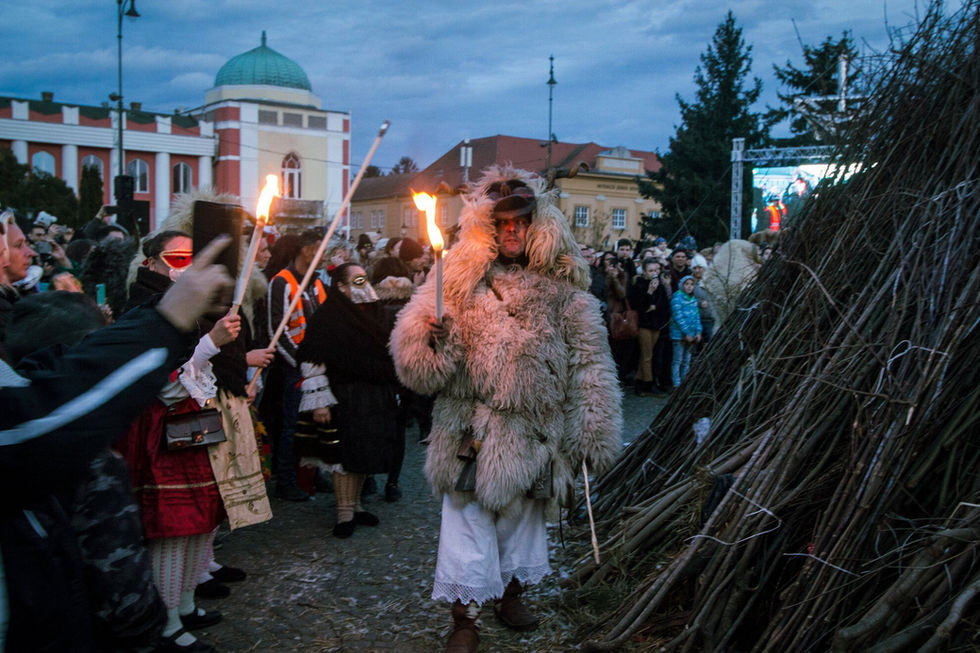SPICY CAT'S GALLERY
The complete visual works.
Scaring away the winter: Busójárás
In the English-speaking world, we associate springtime festivals with the seductive masks and flamboyant costumes of Italian Carnival, or the cheeky beaded necklaces of Mardi Gras. In the old Celtic and Slavic regions of the world, however, Carnival has a darker, more pagan flair, and is associated with spirits, the subversion of etiquette, and mischievous costumed parades wherein pranks are played on onlookers, such as nicking shoelaces or rubbing straw in the hair of attractive young women.
In the Southern Hungarian town of Mohács, February marks the celebration of Busójárás. During the day, women wear traditional Hungarian costumes with lacy masks veiling their faces, and pass out sweets to children. The men don heavy woolen pelts and wooden masks carved into leering, contorted faces, swinging cacophonous noise-makers above their heads as they gambol down the parade route. Catch the eye of a busóman and he will reward you with a nip off his hip flask, filled with the fiery Hungarian spirit pálinka—not an experience for the faint of heart!
Forralt bor, or hot spiced wine, is ladled out of cauldrons in generous portions, and as the sun sets the entire town gathers around a massive pyre erected in the town centre. This is lit by the busómen as the final act of this wild and clamorous day, and the enormous bonfire erupts into existence. The light of the fire, so it's said, scares away the winter, and guarantees the arrival of spring.
Click on any photo to read more.

Old world festivals
I was first introduced to the pagan springtime "Carnival" celebration in Germany, where it's known as Fasching. In Germany, Fasching takes place throughout the entire month of February, with each neighbourhood of Stuttgart, where I was living, hosting their own Fasching parade with their own flair and style. They all had one thing in common, though: playful pranks and grotesquely carved wooden masks, designed to mimic the old goblins and spirits once believed to lurk in the dark German forests. One of my friends, another American living in Germany, was terrified of Fasching, and spent all of February indoors!

The denouement
As the flames engulf the pyre, the busómen swing giant rattling noisemakers over their heads, and everyone's faces turn towards the fire. It gets nearly unbearable in the front row, and gradually the crowd retreats to allow the scorching flames their respective distance. Friends clasp each other in warm embrace, couples giggle at each other as the the excitement begins to wane, and the atmosphere becomes almost peaceful.











